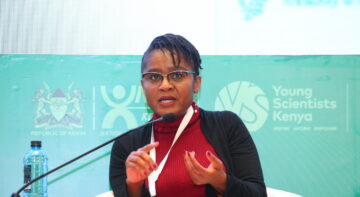Blogs

A systematic review is a transparent, comprehensive and ordered (systematic) summary of all relevant studies that address a specific problem. In health research, systematic reviews are increasingly used as a basis for policy, healthcare decisions, and to inform research designs and priorities. This is because systematic reviews have demonstrated to be one of the most cost-effective ways of summarising evidence and identifying areas where evidence is lacking. Consequently, this assists researchers and research funders to chart systematic paths for future primary research.
Over and above, systematic reviews are the anchor of evidence-based health practice and care. Therefore, practitioners in public health require remarkable acumen in the systematic review tools to critically review existing research. Equipping health professionals with the capacity to access the best available research evidence is thus key to ensure they contribute effectively to clinical and public health decision-making.
AFIDEP-KEMRI systematic review training
In August 2020, between 24 – 28, the African Institute for Development Policy (AFIDEP) in partnership with the Kenya Medical Research Institute (KEMRI) hosted a 5-day, 2 hour-long virtual workshop on systematic reviews and meta-analyses.
The workshop targeted staff from KEMRI and the Kenya Ministry of Health (MoH), Division of research and innovation within the Directorate of Health Policy and Research Development, Health Information, Monitoring and Evaluation. The participants had keen interest to understand the various elements involved in systematic reviews and the process of conducting a systematic review. To enable hands on practice on the knowledge obtained, a six-month mentorship was offered following the training.
The training and mentorship program were designed to practically equip the participants with understanding of the key steps to plan and execute a systematic review process. These include topic selection, developing an objective review question and protocol, conducting literature search, screening titles and abstracts, selecting and obtaining full text papers, conducting risk of bias (quality) assessment, data extraction, data analysis and synthesis, write up and editing the review.
A valuable mentorship programme: Reflections from Sandra and Edwin
The formal mentoring programme which followed the 5-day training consisted of six-monthly sessions for individuals actively engaged in conducting systematic reviews. For Sandra and Edwin, the journey to understand and acquire skills to conduct systematic reviews has been interesting and full of learning, as they explain below.
“We are committed to completing the 6-month mentorship programme and to master requisite skills to conduct systematic reviews.
So far, we have teamed up to conduct a systematic review as part of the mentorship application requirement and we already have the protocol of the topic we intend to review. Titled ‘communication strategies to improve human papilloma virus (HPV) immunization in sub-Saharan Africa: a systematic review,’ the review is registered with Prospero** CRD42021243683.
We have been assigned two great mentors, Dr. Leila Abdullahi, Research and Policy Analyst at AFIDEP and Lilian Mayieka, Senior Research Scientist at KEMRI. With their guidance as well as weekly mentorship meetings and take-away tasks, we have made notable progress in refining our understanding and gaining hands-on experience.”
Key lesson during the mentorship phase
“The mentorship programme has been an instrumental learning opportunity and has especially taught us the value of commitment. We have had an opportunity to work with very committed mentors who have taken time off their busy schedules to guide us through the intense practical process. Equally, as mentees, our commitment has been key in maintaining the momentum set by the mentors and working to meet the objective of the six-month programme.
We are happy with the interactive sessions we have had, the skills and knowledge gained and especially proud to have actually worked on a systematic review manuscript with the end goal of publishing.
Our appreciation goes out to AFIDEP and KEMRI as well as other institutions in Kenya and the rest of Africa who are keen to equip and mentor young researchers with the capacity to generate, use and disseminate evidence using approaches that synthesise and clearly articulate findings for better decision-making and outcomes.”
**PROSPERO: the International Prospective Register of Systematic Reviews is an open access online database of systematic review protocols on health-related topics**
Related Posts





